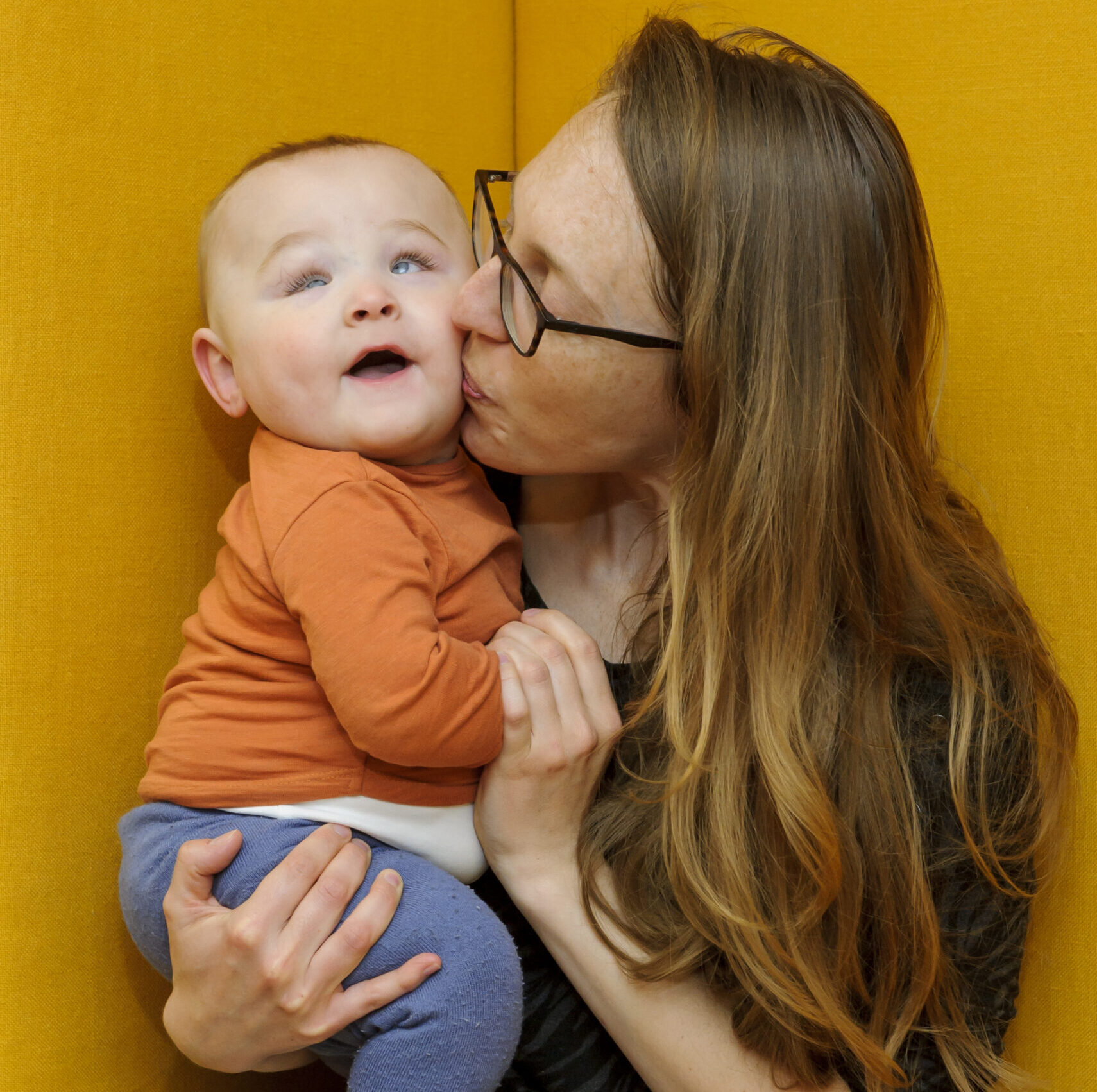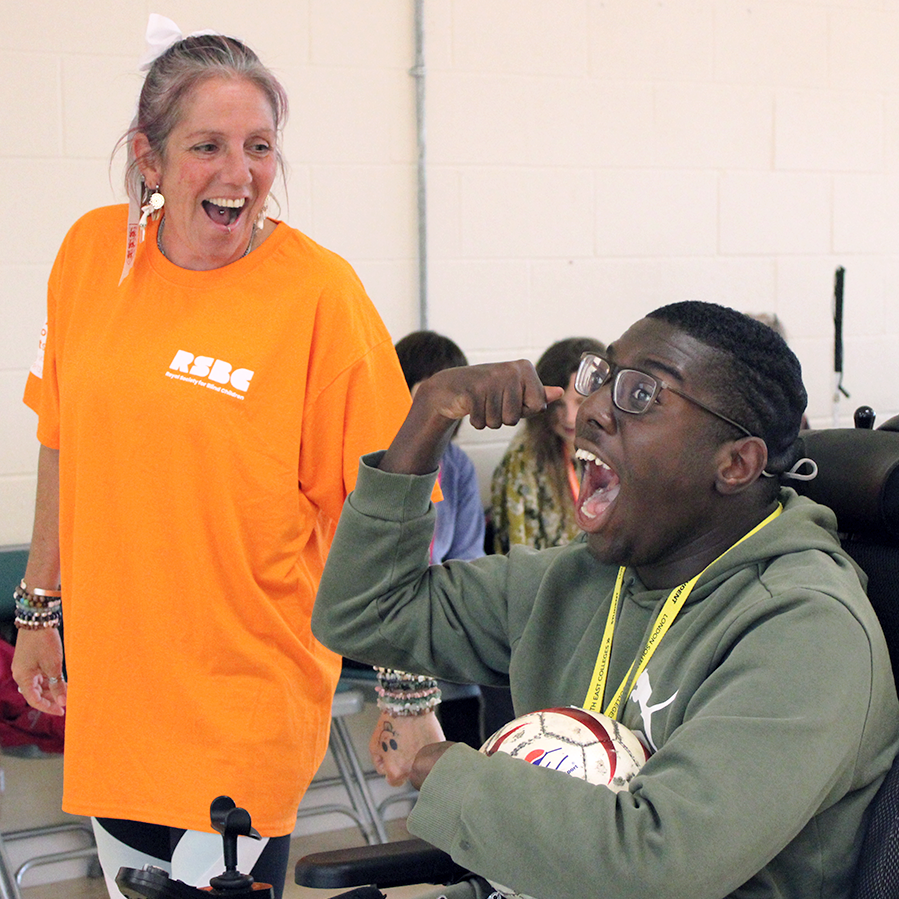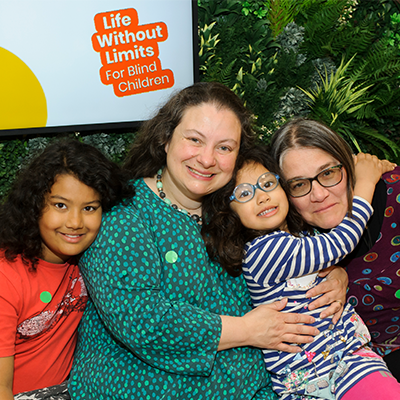5 ways that Braille can unlock independence, confidence, and equality
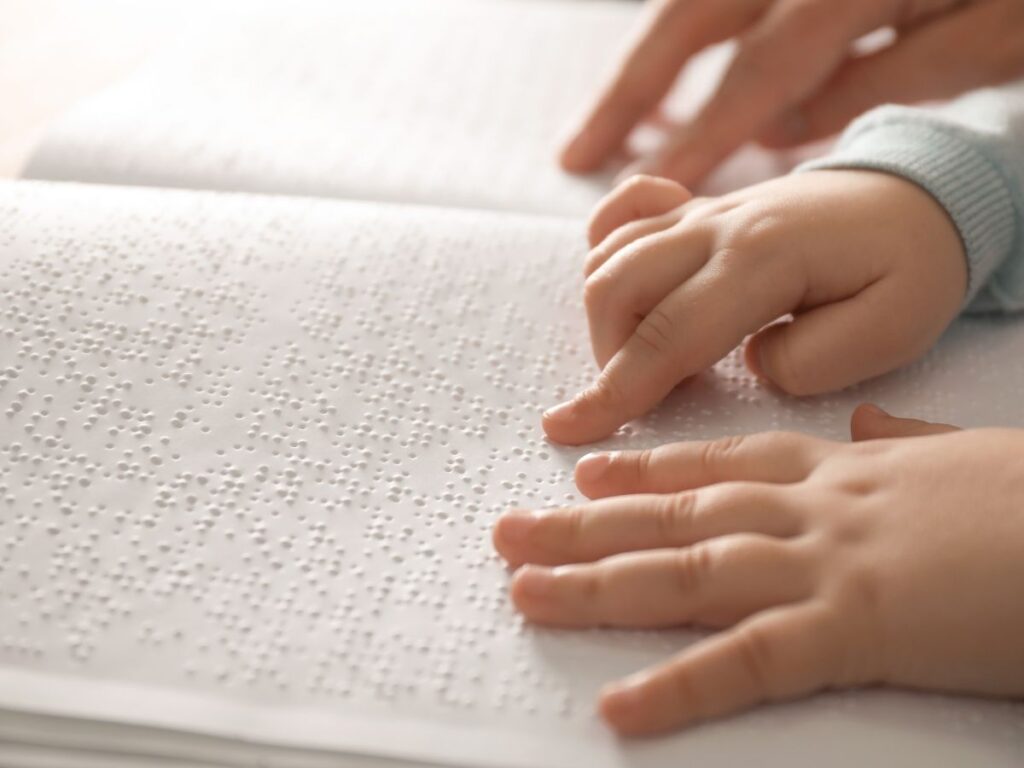
January 4, 2024
We’re used to hearing about how rapid advances in technology are going to level the playing field for those with disabilities. But the fact is that Braille is still the key that unlocks independence for those who are blind or partially sighted – an amazing achievement for a system that was first presented in 1824 by Louis Braille.
Using a grid of six raised dots arranged in two columns of three dots each, with each combination of dots representing a letter, number, or punctuation mark, it’s a simple and efficient system with an array of benefits.
Juliette, Engagement Officer at the Royal Society for Blind Children (RSBC) and a Braille user, was born with a vision impairment and knew that her vision was deteriorating. She decided to learn Braille to prepare for the future. She admits that it was a bit daunting at first, but having now mastered it herself, she says she’d encourage others to try it. “Anybody who’s thinking about learning Braille, you’ll hear that it’s really difficult. It can be, but I think it’s worth giving it a go anyway, because it’s such a useful skill to have. You might find that you really enjoy it!” Read more about Juliette’s story: Juliette’s Braille journey.
As a Braille advocate, RSBC is dedicated to ensuring that children with vision impairments have access to the opportunities as sighted children.
How Braille can transform lives
1. Opening up a world of communication
Braille helps develop the essential skills of spelling, punctuation, and grammar. While some people may prefer to get their information via audio, reading Braille can help with comprehending, engaging with, and retaining text information, especially if it’s long or complicated. You can join the ClearVision library to receive free children’s books in print and braille, and tactile books.
2. Helping with learning maths and science
Because they’re visual in nature, science and maths can be challenging for blind and partially sighted people. However, Braille can help with their learning because of its equivalents for symbols, meaning that they have the opportunity to excel in these subjects.
3. Helping promote equality and accessibility
Braille literacy provides blind and partially sighted people with vital access to the written word, and that fosters greater equality in society. The ability to read and write Braille opens doors to independence, offering the same use, power, fluidity, and enjoyment of written language that sighted individuals experience. And Braille labels on everyday items, medicines, and signage in public spaces help to contribute to a more accessible environment overall.
4. Providing empowerment and boosting self-esteem
Being literate in Braille is crucial for self-confidence – it means that blind and vision impaired people can express themselves through the written word. Because they’re able to understand and engage fully with written texts, they can manage their day-to-day life independently.
5. Bringing employment opportunities
Top view of a Braille note taker
It’s been shown through various studies that those with sight loss who have skills in Braille are more likely to be employed. Through using electronic Braille notetakers, users can take notes in meetings, training sessions and presentations. And when a workplace accommodates Braille and other assistive technologies to help their blind and partially sighted employees use the tools that best suit their needs, a more inclusive environment is the result. Wecapable, an online Braille typewriter, is one of the easy-to-use tools that can help you type in Braille and copy the Braille code. You can also learn more about the current trends, software, and apps with the RSBC Accessible Technology sessions, by Alex, our Assistive Technology Officer.
While Braille may be viewed more generally as just reading and writing, it’s much more than that. It continues to play a crucial role in the lives of people with vision impairment, giving them independence, confidence, equality, and employment opportunities.

You May Also Like
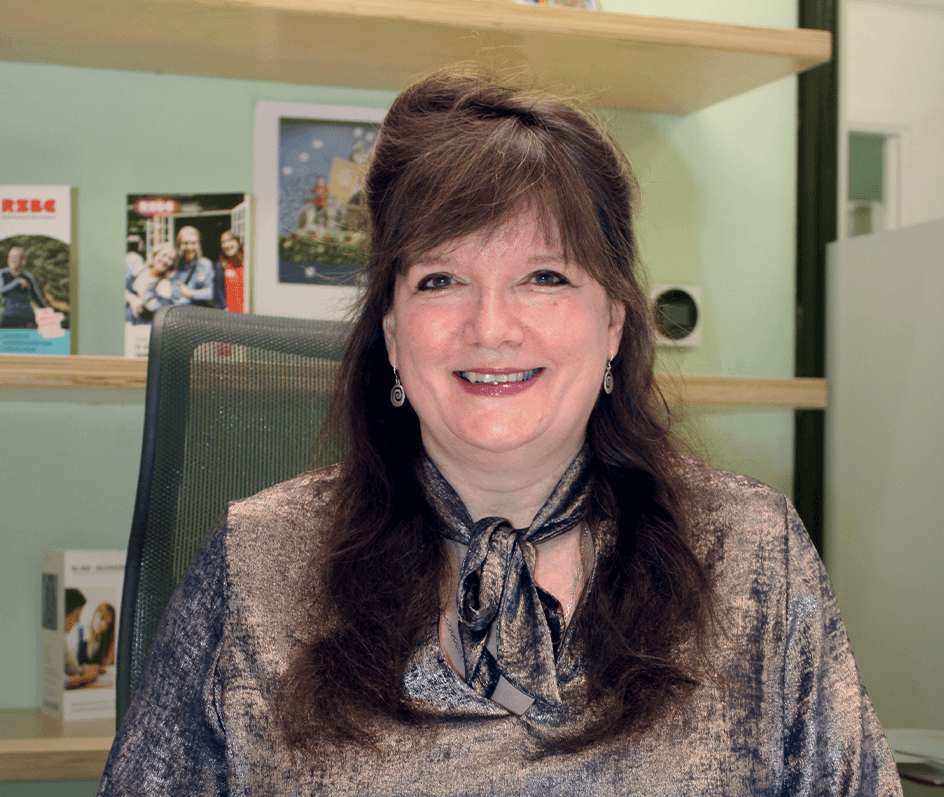
No categories March 28, 2025
Mother’s Day: our CEO shares her story
Happy Mother’s Day to everyone celebrating! In recognition of this special day, we sat down with our CEO, Julie, to hear about her relationship with her daughter, Saime, who is registered blind.

No categories March 20, 2025
What our young poets have to say this World Poetry Day
We were delighted to host two workshop sessions with renowned poet Dave Steele recently, and they certainly fired up the imaginations of the young people who attended! We’re pleased to be able to showcase the incredible talent that came out of the workshops in the beautiful poems written by those attending below.
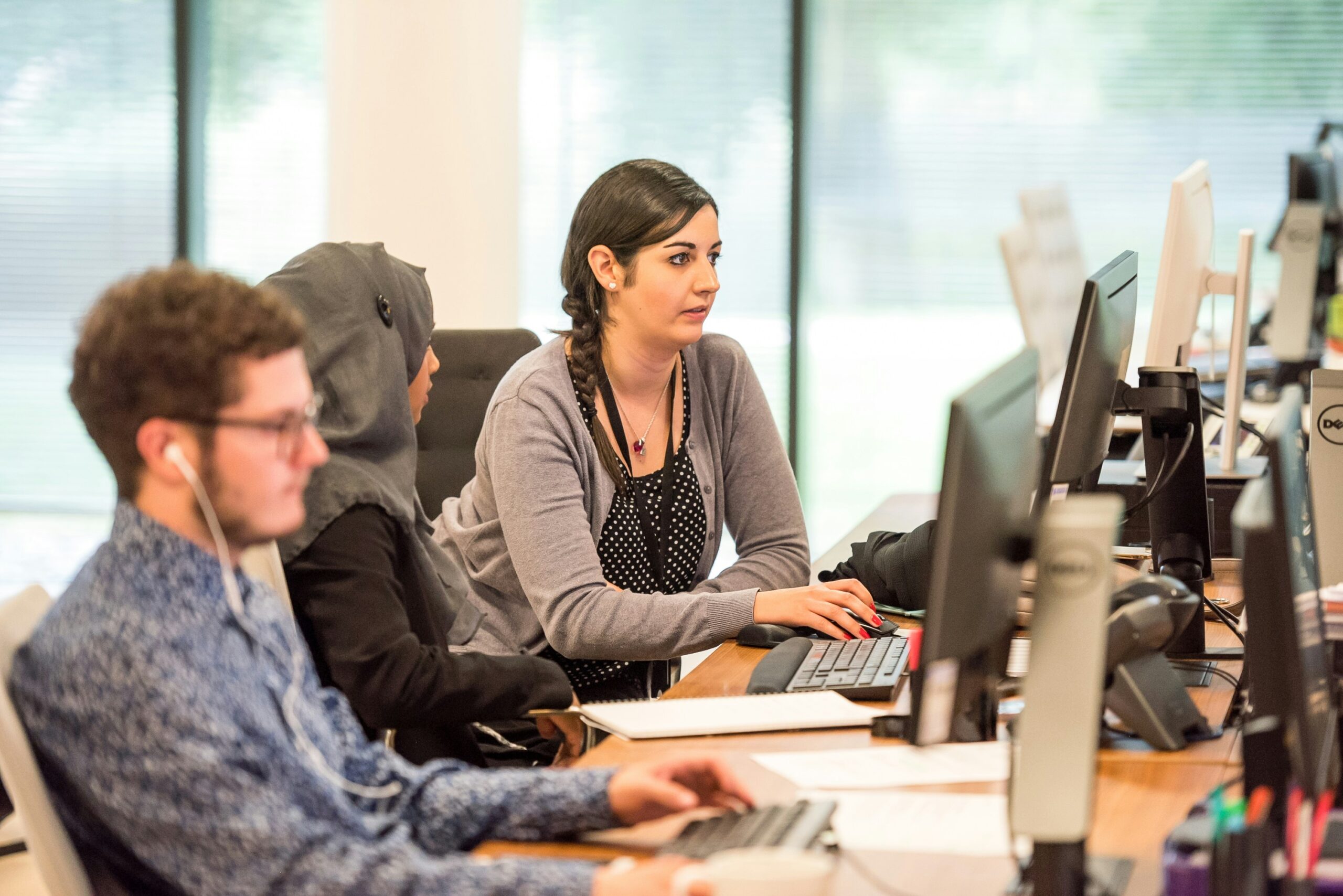
No categories March 10, 2025
RSBC’s 5 key reforms to support young people into work
The government has just announced plans for a major shakeup of the welfare system, with £6bn of proposed cuts. Personal Independence Payments (PIP) are a lifeline for many people in our community. We understand the system needs reform, and that tough times can call for tough measures. But cutting back on PIP without making it […]
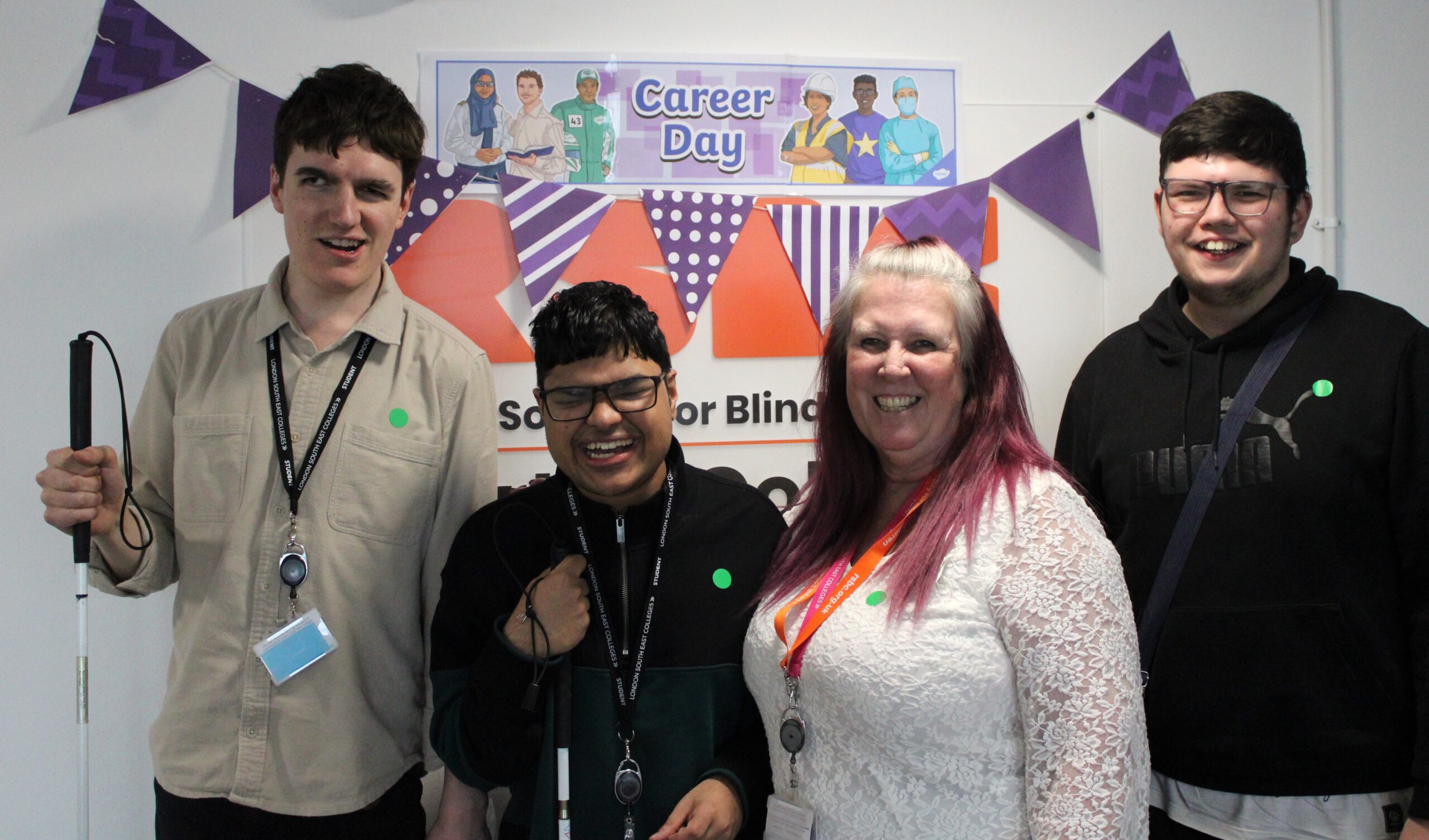
No categories March 7, 2025
Dorton College careers day: giving our students the confidence to shine
Too often, young people living with a vision impairment aren’t given the career opportunities they deserve. That’s why RSBC’s Dorton College hosted a careers day recently, inviting external speakers to inspire our students and help provide them with the tools they need to enter the world of work.
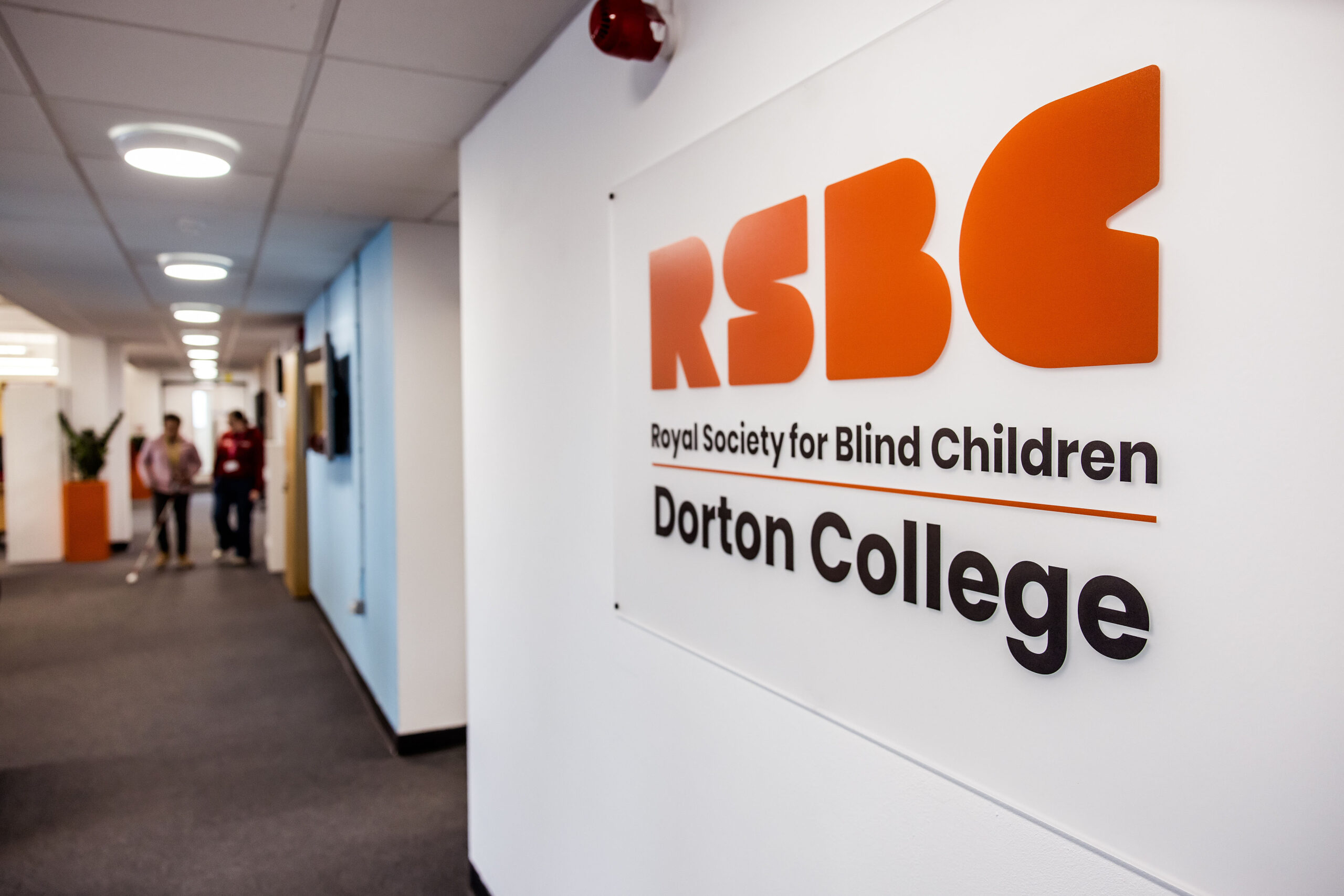
No categories March 5, 2025
Gary O’Donoghue’s win at the RTS Television Journalism Awards
Each year, the Royal Television Society hosts the Television Journalism Awards, celebrating the most prestigious change-makers in the British journalism space.
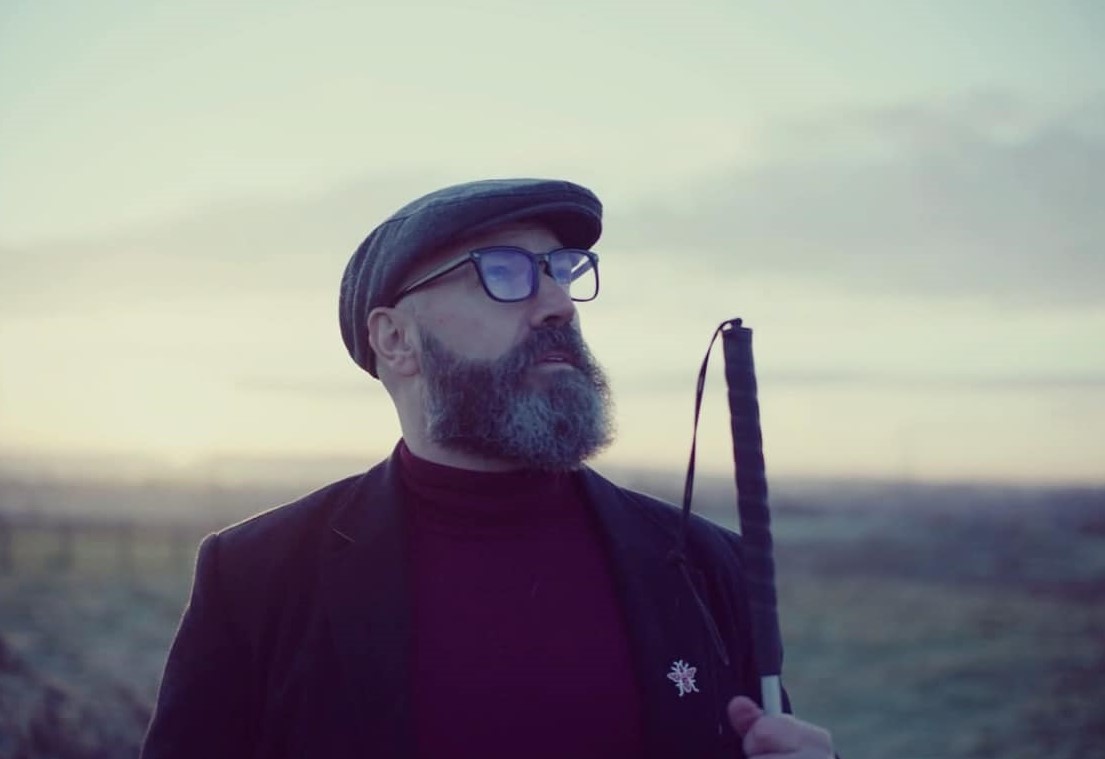
No categories March 4, 2025
Young people unlock their imagination at The Blind Poet’s workshops
Dave Steele, popularly known as The Blind Poet, is an internationally acclaimed and award-winning poet, author, speaker and singer – and an advocate for people with vision impairment.

No categories March 3, 2025
Helping young people be heard: RSBC’s Youth Voice Strategy Day
Recently, RSBC’s Youth Forum, Young Ambassadors and members of the RSBC team came together for a Youth Voice Strategy Day at our Life Without Limits Centre in London. The mission was simple: young people were tasked with coming up with their own objectives and create a roadmap for the future, which would help RSBC identify […]

No categories February 19, 2025
The Roundhouse becomes London’s first venue to use Navilens – with RSBC’s support
Iconic music and performing arts venue, the Roundhouse in Camden, has provided creative space that empowers people and communities since the 1960s. Its team is focused on unleashing the creative potential of young people and artists, giving them the opportunity to experiment, develop their skills, and be part of unforgettable moments with a lasting impact.
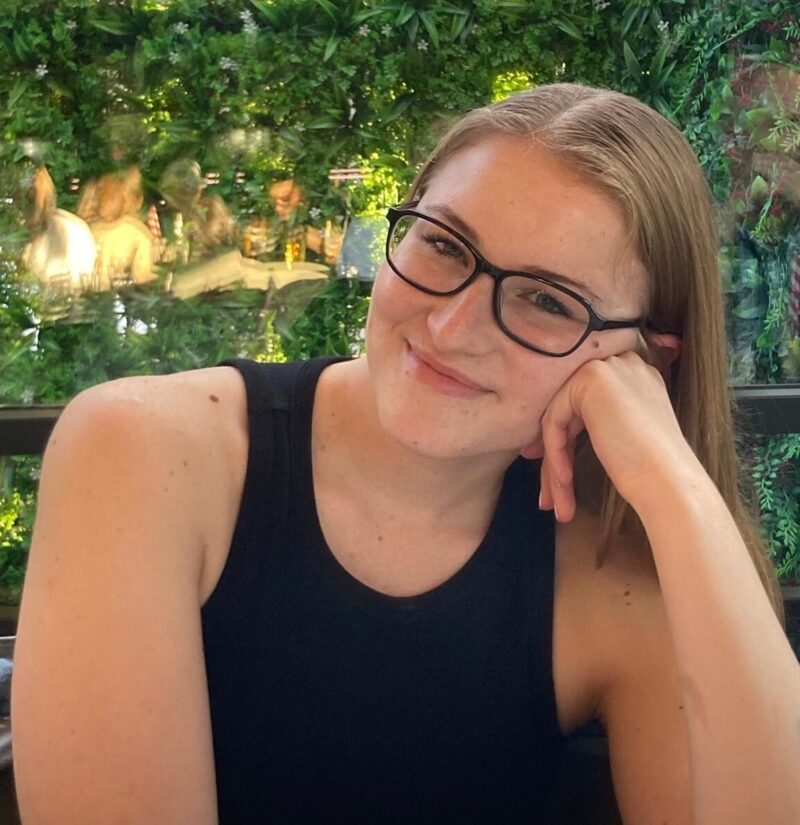
No categories February 14, 2025
A volunteer’s journey: Meet Joné
Joné has been volunteering with RSBC since August 2024. We spoke to her about why she wanted to become a volunteer and what her experience has been like so far.
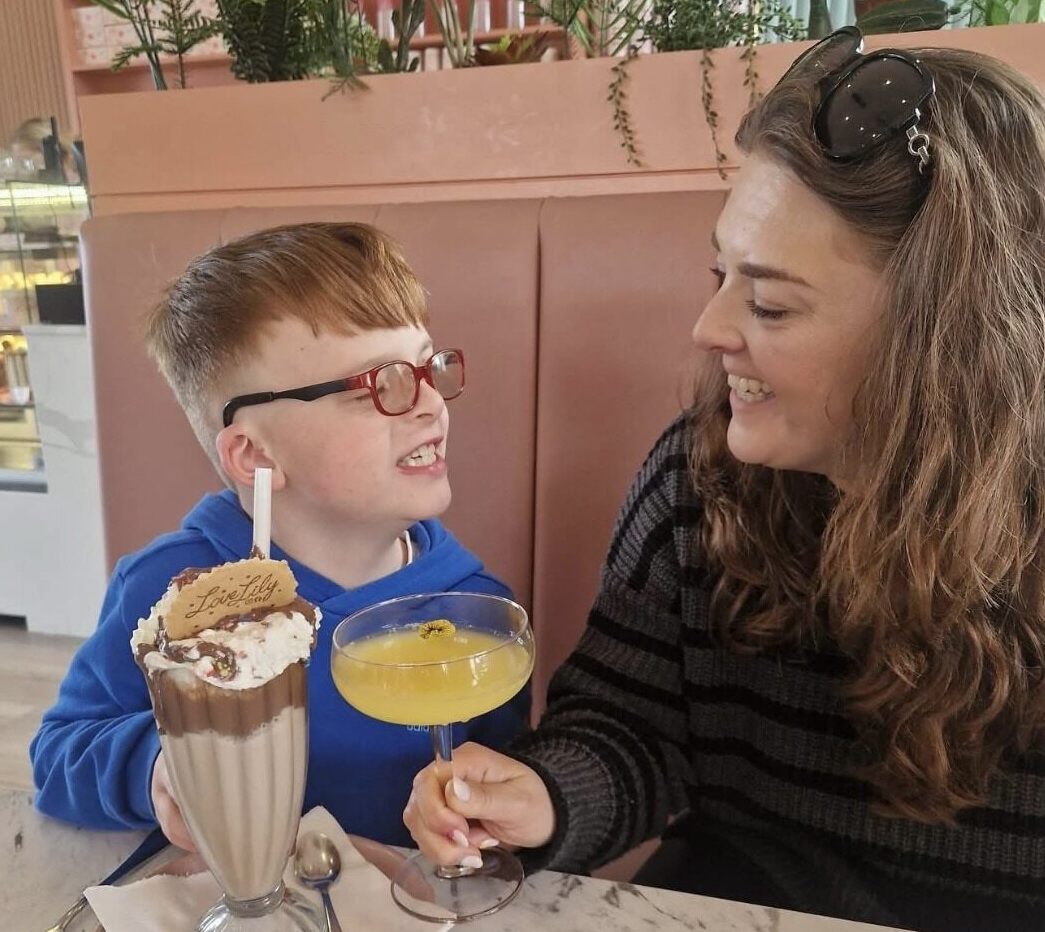
No categories January 30, 2025
George and Nicola’s story
George is an energetic and confident eight-year-old boy who lives in a bustling household with his mum, Nicola, his dad, and his baby brother Ted. It’s a home that’s filled with love and resilience as the family faces the challenges and celebrates the triumphs that vision impairment brings.

